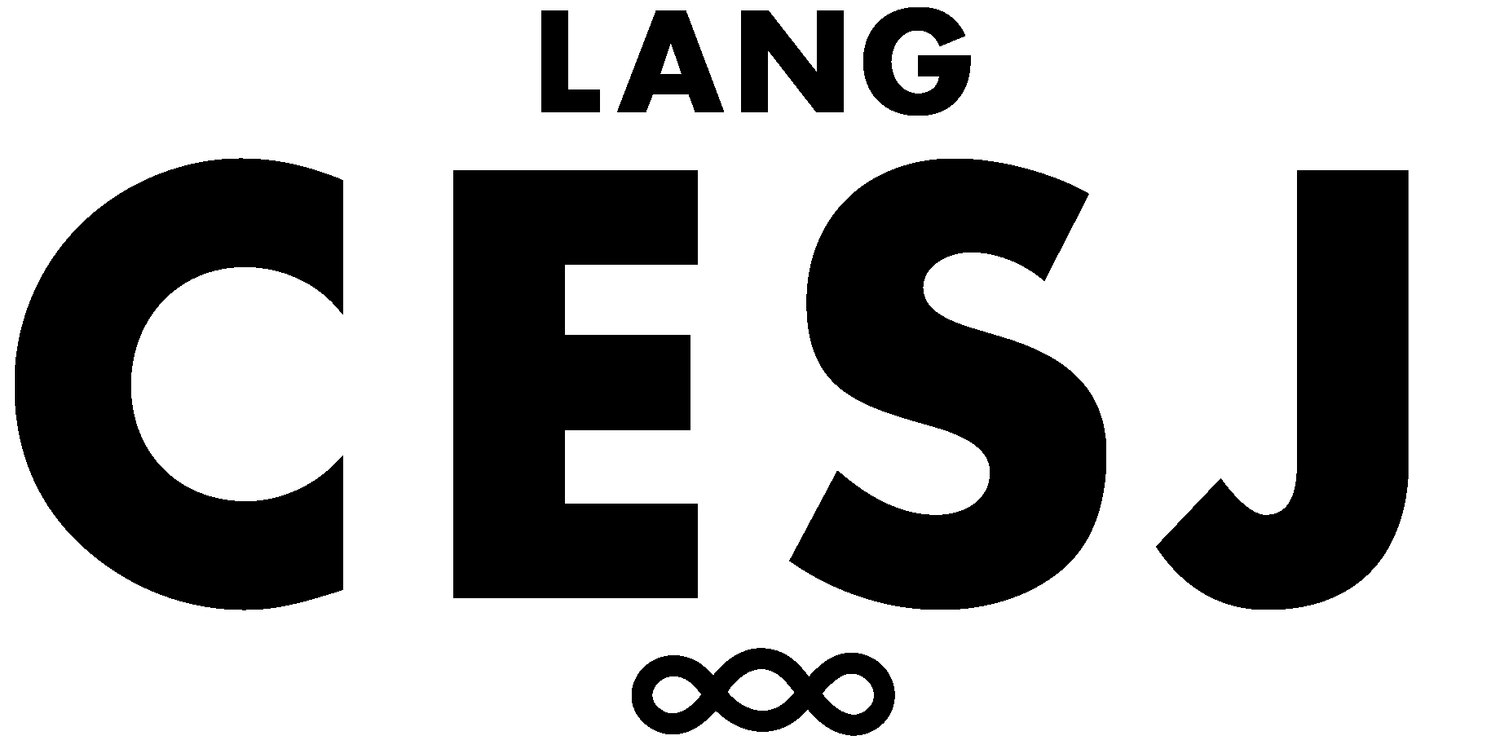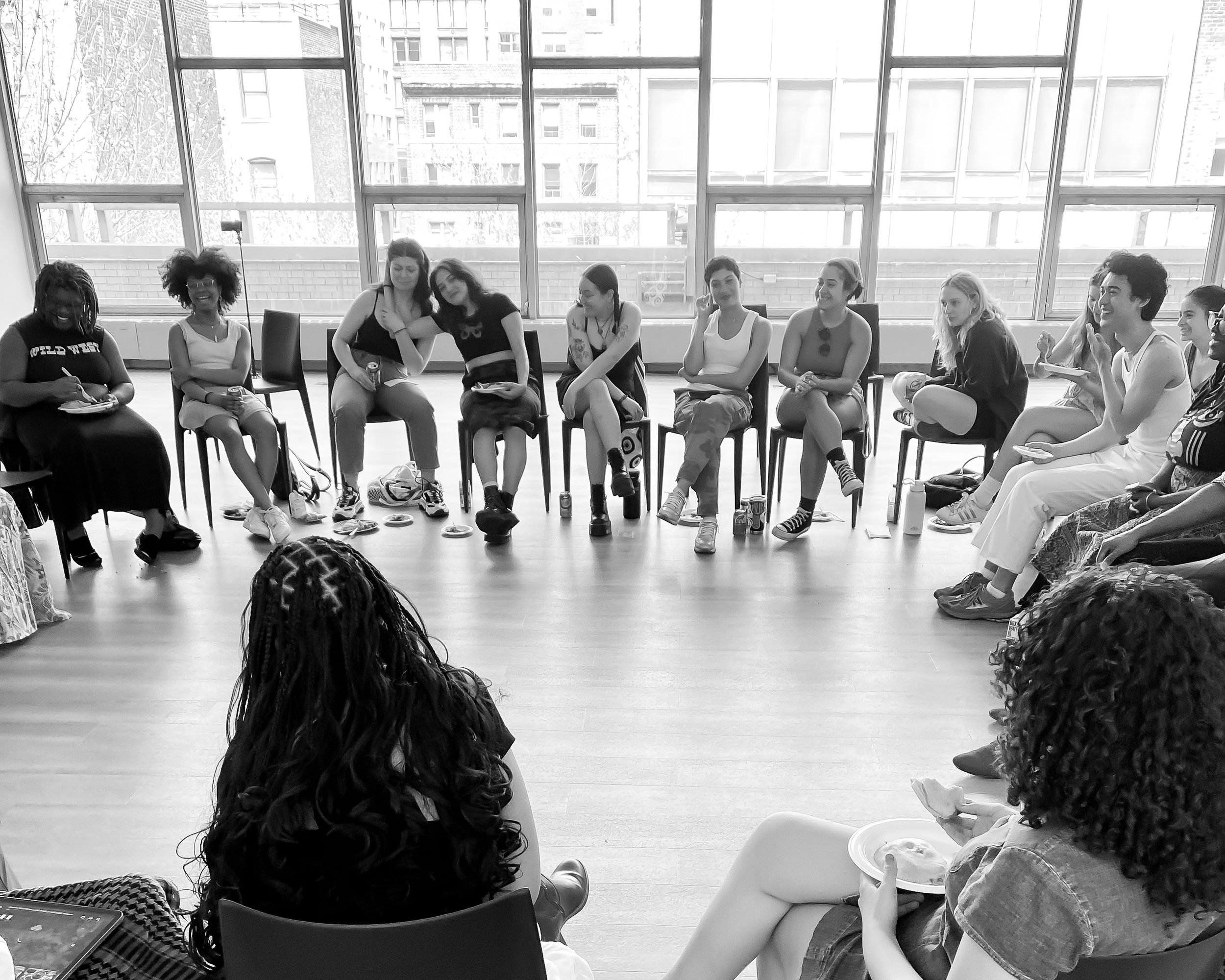Freedom Scholars
The Freedom Academic Achievement and Opportunity Scholars Program is a social justice peer-learning community where an inclusive cohort of students study the elements of intersectional movement building and social justice through a values-based curriculum. Freedom Scholars is a selective four-year scholarship program for students at Eugene Lang College. The program provides need-based scholarships each year from orientation to graduation for up to 12 per cohort Lang students.
Through a holistic, participatory model, Freedom Scholars creates a space where New School faculty and staff commit to providing students with financial support, student advocacy, rigorous academic scholarship, and access to activists and organizers from the movements of our time. Through readings, podcasts, movies, field trips, guest speakers, and community activities, Freedom Scholars creates a nourishing environment for students to think critically about how to use what they learn to build a more inclusive and dignified world.
What We Do
The student-scholars participate in courses that center social justice taught by practicing scholar activists. Together, the Freedom Scholars Community (students, faculty and staff) work through tenets of critical inquiry, community building, growth, trust, integrity, change, knowledge sharing and love of self and community. Students are required to take a 0-2 credit course in the Fall and Spring semesters. These courses meet on Fridays from 12:55 - 2:35pm. We HIGHLY recommend students meet with their advisors to review their course schedule to ensure Freedom Scholars is a possibility.
Freedom Scholars is housed in the Office of Civic Engagement and Social Justice at Eugene Lang College. Students participate in the Freedom Scholars program from admittance (1st-3rd year) to graduation.
The Scholars community acknowledges a world/climate of white supremacist anti-black racism, patriarchy, transphobia, queerphobia, anti-poverty, and anti-immigrant narratives. Students are given tools to not only face oppressions with care and community advocacy but also to dismantle them. We also acknowledge that this work is ongoing and will never be resolved with single solutions.
As members of this community, scholars meet weekly with a cohort, participate in community gatherings and other activities, which may include field trips, one-on-one advising, film series and guest speaker lectures. Our staff and faculty are activists, artists, community organizers and stakeholders in the field as well as individuals who have expertise in navigating The New School.
In their first year cohort, scholars are welcomed into the program and are oriented into social justice values; the second year cohort typically hones in on the architecture of specific movements and practices; the third year cohort may complete a travel-based or independent summer project; and the fourth year cohort involves self-study and preparation for the future.
Please reach out to langCESJ@newschool.edu with any questions.
The Freedom Scholars program is more than a scholarship — it is a commitment to developing work and identity as social justice scholars and activists. In addition to receiving a supplemental scholarship, scholars are enrolled in a year-long zero to two-credit cohort-based seminar (one credit for each academic semester) focused on social justice theory and practice.
In all Freedom Scholars spaces we uplift the experiences and expertise of our student scholars and cultivate connections. All of our seminars explore strategies for change-making with diverse approaches. Our praxis (study in action) is rooted in community contributions.
In Freedom Scholars We:
Consider the self and identity within community, history, and the contemporary moment;
Draw on key case studies to examine long-term organizing principles and strategies;
Prepare students for evolving social-justice lives;
Challenge the political economy of social justice, specifically its institutional forms: charities, nonprofits, foundations, NGOs, etc. and examine the alternatives such as mutual aid and collective practice;
Navigate lessons in accountability on a community and cultural level.



